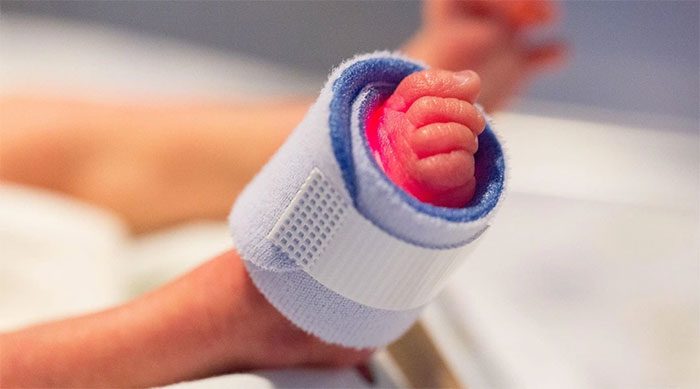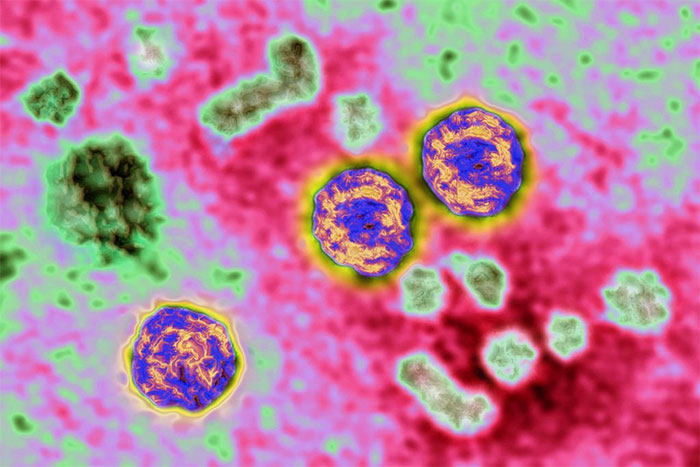In addition to adenovirus, many experts believe that mysterious hepatitis is a symptom of long COVID-19. Researchers are beginning to find commonalities among the cases.
According to the latest report from the World Health Organization (WHO), there are currently at least 348 cases of mysterious hepatitis in children worldwide. From the moment the first cases appeared, what drew the attention of health experts to this outbreak was that the culprit was not the usual hepatitis viruses or any other clear sources.
Subsequently, scientists began to focus on adenovirus—a type found in a large number of affected children. However, this has not been the final answer, as there are still many gaps to conclude that adenovirus is the cause of the mysterious hepatitis.
After more than a month since the first case was discovered, once again, clues led scientists to shift their suspicion to a new hypothesis. This is the theory that mysterious hepatitis is a symptom of long COVID-19.
The Connection Between COVID-19 and Mysterious Hepatitis
According to CBC Canada, in mid-May, experts in the U.S. published findings in the Journal of Pediatric Gastroenterology and Nutrition regarding data analyzing a 3-year-old girl with mysterious hepatitis. The child developed acute liver failure a few weeks after recovering from a mild case of COVID-19.
Dr. Anna Peters, a pediatric gastroenterologist at Cincinnati Children’s Hospital Medical Center and the lead author of the study, stated: “This child had liver biopsy results and blood tests consistent with a type of autoimmune hepatitis that may have been triggered by a nCoV infection.” She suggested that it cannot be proven that COVID-19 directly caused hepatitis in this case, but the virus may have activated an “abnormal immune response” that subsequently attacked the liver.

Many children, including newborns, are in critical condition due to mysterious hepatitis. (Photo: The Financial Express).
“I think it’s important for doctors to understand that this is a rare condition that can occur during or after COVID-19. We need to test the liver in patients who do not fully recover. Parents should not panic but consult pediatricians if their child is ill. Timely diagnosis and treatment are key to helping children recover,” Dr. Anna added.
The authors of the study also reported that the child in this case recovered after treatment and did not require a liver transplant. However, similar conditions may occur in reported cases in the UK and many other countries.
Dr. Yael Mozer Glassberg, an Israeli physician, previously spoke to CBC News about the Schneider Children’s Medical Center, where she works, treating at least 8 children with unexplained hepatitis since February 2021. This was before the WHO received warnings about this outbreak (in October 2021).
When analyzing these cases, the only commonality was that all 8 children had a history of COVID-19. They confirmed this through serological testing and medical history from relatives. None of the children tested positive for adenovirus.
Another research finding that caught the attention of global experts came from Indian scientists. Their study assessed whether COVID-19 could cause dozens of cases of unexplained hepatitis in children in central India from April to July 2021. The authors evaluated 475 children who tested positive for nCoV across India. Among them, 47 had severe hepatitis.
Notably, 10 children with multisystem inflammatory syndrome (MIS-C) were excluded. The remaining 37 cases were classified as hepatitis related to COVID-19 (CAH-C).
Associate Professor Dr. Sumit Rawat from Bundelkhand Medical College in Madhya Pradesh, India, the lead author of the study, stated: “The common factor we found was that all the children were infected or had a history of COVID-19.” We conducted antibody testing for nCoV in these children. All had antibodies.”
Indian researchers also searched for other common causes behind the 37 cases of acute severe hepatitis, such as hepatitis viruses A, C, E, and many other diseases like varicella-zoster, herpes, and cytomegalovirus (CMV). However, they found nothing that could reasonably explain the symptoms.
17 samples were analyzed, and only 3 cases tested positive for adenovirus—showing very weak evidence. According to Associate Professor Dr. Sumit Rawat, proving that COVID-19 causes mysterious hepatitis will take a lot of time. He noted that the most important suggestion at this time is that cases of mysterious hepatitis seem to decrease when COVID-19 transmission stops. However, whenever COVID-19 waves increase, the number of mysterious hepatitis cases also rises.

Adenovirus is the primary suspect that experts believe may be causing the wave of mysterious hepatitis. (Photo: BSIP/Universal Images Group).
Adenovirus Remains the Leading Hypothesis in the UK
Dr. Philippa Easterbrook, a leading scientist at WHO, indicated that she has changed her perspective after some more reasonable hypotheses regarding the suspects causing mysterious hepatitis were presented by the UK Health Security Agency.
“The leading hypotheses still involve adenovirus, but I think it’s also worth considering the role of COVID-19 as a co-infection or a precursor to this condition,” the expert stated.
In the UK, more than 170 cases have been recorded in children under 16 years old from January 1 to the present. 11 children required liver transplants. About 70% tested positive for adenovirus, and under 20% tested positive for nCoV.
The UK Health Security Agency (UKHSA) is also conducting serological tests to see if the samples contain antibodies from previous COVID-19 infections. In Europe, according to reports from ECDC, 74% of tested samples contained nCoV antibodies.
Experts in the UK are researching various hypotheses for mysterious hepatitis. It could be due to children contracting common adenovirus but experiencing unusual severe illness due to a lack of exposure to the virus during the pandemic. Alternatively, this could be a particularly large outbreak of infection that makes rare complications more common. Another hypothesis suggests that hepatitis is the body’s response when children co-infect nCoV with adenovirus or is a post-COVID-19 sequela.
Dr. Jordan Feld from the Toronto Western Hospital Liver Clinic in Canada emphasized that adenovirus can cause mild illness in many people, but there are still cases where a small group becomes severely ill. This is similar to the situation where some people with COVID-19 are asymptomatic while others become critically ill.



















































